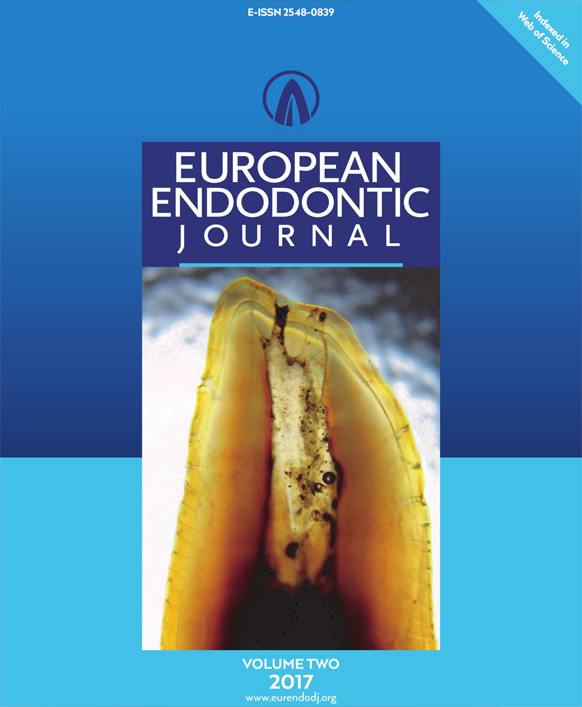
European Endodontic Journal
Yazarlar: Roberto Gustavo Sánchez- Lara Y Tajonar, Karla Pamela Sánchez- Mendieta, Rita Elizabeth Martínez- Martínez, Rubén Abraham Domínguez- Pére
Konular:-
DOI:10.5152/eej.2017.17037
Anahtar Kelimeler: endodontics,Periapical healing,Obturation,Root canal obturation
Özet: To provide evidence from a clinical viewpoint that the bacteria that persist within the root canal system do not have a significant impact on the treatment outcome as long as an adequate apical sealing is performed. Design: A randomized, controlled trial. Methods: Population: A total of 42 patients with pulp necrosis and a periapical index (PAI) score of 5. Root canal treatments obturated only in the apical third. In control group, root canal treatments were completely obturated. Hypothesis: Same apical healing. Data were analysed using the Mann-Whitney test and the χ2 or the Fisher exact test (when appropriate). Results: All cases presented clinical success, absence of pain, swelling, sinus tract, tenderness to palpation or percussion and presented normal tooth mobility. Fifteen months were enough for all cases of both groups to be classified with a PAI score of ≤2. There was no statistical difference between the cases that ended the study with a PAI-1 or PAI-2 score. Conclusion: Within the limitations of this study, no significant differences in healing rates after complete obturation or only apical third obturation were observed. An adequate apical sealing can improve periapical healing, thus intracanal remnant bacteria apparently have no significant impact, at least for the first 15 months of follow-up.